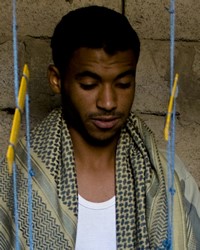Muhamasheen, Akhdam in Yemen

Photo Source:
Mathieu Génon - Wikimedia
Creative Commons
|
Send Joshua Project a map of this people group.
|
| People Name: | Muhamasheen, Akhdam |
| Country: | Yemen |
| 10/40 Window: | Yes |
| Population: | 1,344,000 |
| World Population: | 1,691,000 |
| Primary Language: | Arabic, Ta'izzi-Adeni |
| Primary Religion: | Islam |
| Christian Adherents: | 0.00 % |
| Evangelicals: | 0.00 % |
| Scripture: | Portions |
| Ministry Resources: | No |
| Jesus Film: | Yes |
| Audio Recordings: | Yes |
| People Cluster: | Arab, Arabian |
| Affinity Bloc: | Arab World |
| Progress Level: |
|
Introduction
Muhamasheen mostly live in big city slums in fierce poverty and discrimination. Men work as street sweepers, women collect cans and bottles and both typically beg. There is no justice for them, nor is there education for their children.
Ministry Obstacles
Sometimes people who have only known severe poverty cannot see past their circumstances to visualize better futures. As encouragement, Scripture portions are available in their language, as well as gospel films and recordings.
Outreach Ideas
Pray for the Followers of Christ
Pray for the Entire People Group
Pray for many in the tribe to seek and find almighty God.
Pray for signs and wonders to confirm his word.
Pray for many Muhamasheen families to be blessed as they allow him to transform their community.
Few believers are known to exist among the Muhamasheen. However, pray for those who will soon come to know and follow Christ.